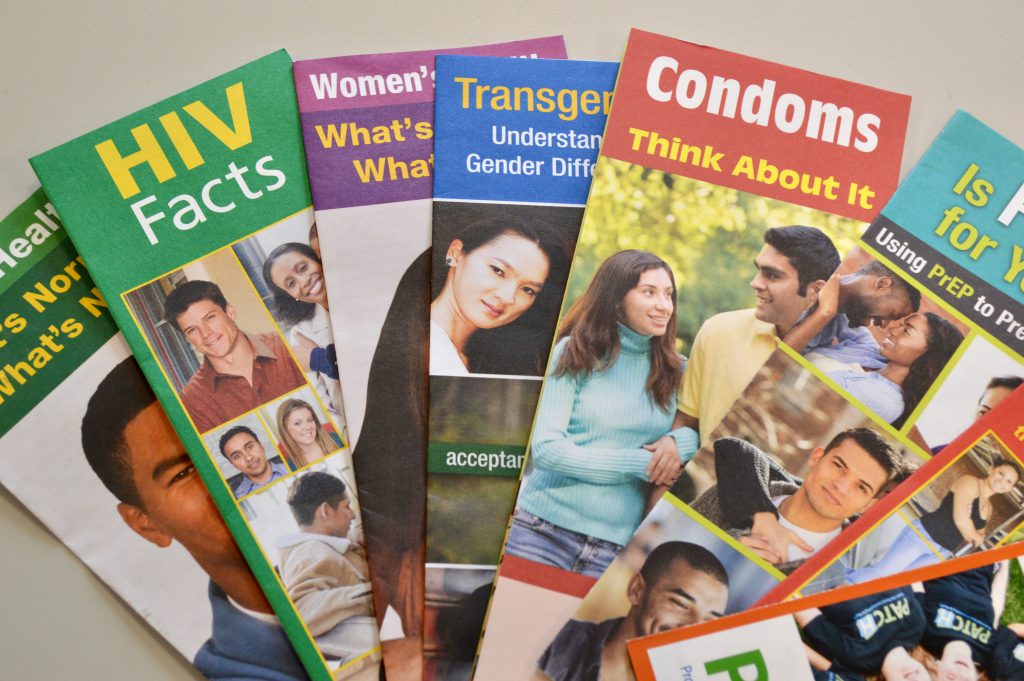Got a Minute: STD education, prevention is important - The Livingston County News
Got a Minute: STD education, prevention is important - The Livingston County News |
| Got a Minute: STD education, prevention is important - The Livingston County News Posted: 28 Apr 2019 07:23 AM PDT ARTICLE OPTIONS Lifelong treatment, pain, infertility, and cancer are the potential outcomes of sexually transmitted diseases. The stark health realities and startling statistics paint a serious picture. April is Sexually Transmitted Diseases (STDs) Awareness month, a time to raise awareness about STDs and take action to mitigate the increasing numbers. The U.S. Centers for Disease Control and Prevention reports the following sobering data. In 2017: ■ There were more than 2 million diagnosed cases of chlamydia, gonorrhea, and syphilis. n There were 200,000 more cases of these STDs than the previous record set in 2016. n Diagnoses of chlamydia, gonorrhea, and syphilis all increased sharply for the fourth year in a row. From 2013-2017: n Syphilis cases nearly doubled. n Gonorrhea cases increased by 67 percent. n Chlamydia remained at record highs. n Congenital syphilis cases more than doubled. Currently: n In 2018, there were about 820,000 new gonorrhea infections in the U.S. - less than 50 percent were detected and reported to the CDC. 246,000 of those cases were resistant to at least one antibiotic. n There are more than 110 million STDs overall among men and women nationwide (this includes both new and existing infections.) n Those most at risk are young people aged 15 to 24 years old, gay and bisexual men, and pregnant women. While most sexually transmitted diseases are treatable they are not necessary curable. Syphilis, gonorrhea, chlamydia, and trichomoniasis are curable, however, there are now strains of gonorrhea that are antibiotic resistant and do not respond to any treatment. The CDC and World Health Organization indicate this is happening with syphilis and chlamydia as well. Some STDs are viral and therefore incurable. Treatments are available but the virus remains. These include hepatitis B (HBV), herpes simplex virus (HSV or herpes), HIV, and human papillomavirus (HPV). The issue, however, is not simply whether it is curable or incurable. The issue is testing and treatment. Eighty percent of people who have a STD experience no noticeable symptoms. They fail to get screened because they are not feeling ill. The STD in the meantime may be causing damage. STD health consequences include vaginal or penile discharge, a burning sensation while urinating, infertility, and cancer. Women are disproportionately affected but men have serious, adverse effects as well. Undiagnosed and untreated STDs can spread to a woman's uterus and fallopian tubes causing pelvic inflammatory disease (PID). With or without symptoms, PID can cause permanent damage including long-term pelvic pain, infertility, and potentially deadly ectopic pregnancy (pregnancy outside the uterus). Undiagnosed STDs cause 24,000 women to become infertile each year. Although infertility is less common among men, it does occur. More commonly, untreated infections in men may cause epididymitis, a painful infection in the tissue surrounding the testicles, or urethritis, an infection of the urinary canal in the penis, which causes painful urination and fever. STD education and prevention is important for individual and societal health. The CDC recommends the following to protect yourself and your sexual partners. Abstinence The most reliable way to avoid infection is to abstain from anal, vaginal, or oral sex. Vaccination Vaccines are safe, effective, and recommended ways to prevent hepatitis B and HPV. HPV vaccines for males and females can protect against some of the most common types of HPV. Mutual monogamy Mutual monogamy means that you agree to be sexually active with only one person, who has agreed to be sexually active only with you. Being in a long-term mutually monogamous relationship with an uninfected partner is one of the most reliable ways to avoid STDs. But you must both be certain you are not infected with STDs. It is important to have an open and honest conversation with your partner. Reduce your number of sex partners Reducing your number of sex partners can decrease your risk for STDs. It is still important that you and your partner get tested, and that you share your test results with one another. Use condoms Correct and consistent use of the male latex condom is highly effective in reducing STD transmission. Use a condom every time you have anal, vaginal, or oral sex. Non-latex condoms can be used but have higher breakage rates than latex. Natural membrane condoms are not recommended for STD prevention. This very complex health issue requires education and open, frank conversations. To learn more about sexually transmitted diseases, risks, symptoms, effects, and treatments, go to: http://www.cdc.gov/std/. To learn more about STD screening, speak with your physician or contact the Livingston County Department of Health's Reproductive Health Center at (585) 243-7540 or 1 (800) 243-9240. The Reproductive Health Center has three locations in Mount Morris, Avon, and Dansville. All offer low-cost or no-cost STD and HIV testing. Lorraine Wichtowski is a community health educator at UR Medicine Noyes Health in Dansville. If you have questions or suggestions for future articles, contact Lorraine at lwichtowski@noyeshealth.org or (585) 335-4327. |
| A Primer on Sexually Transmitted Diseases - urbanmilwaukee Posted: 18 Apr 2019 12:00 AM PDT Get a daily rundown of the top stories on Urban Milwaukee  With the growing rate of STD cases in Milwaukee, people are encouraged to get tested. Photo by Ana Martinez-Ortiz/NNS. In recent years, Milwaukee has seen a rapidly growing rate of sexually transmitted diseases (STD) cases. According to AIDS Vu, there are roughly 3,000 people living with HIV in Milwaukee. This past spring, the Journal Sentinel reported that 125 people had contracted HIV and/or syphilis. With the growing number of cases, sexually active persons are encouraged to get tested and know their status. Here are answers to common questions on the subject: Where do I go to get tested? Getting tested for an STD can be relatively easy. Nowadays, places such as the Keenan Sexual Health Clinic at 3200 N. 36th St. offer tests without an appointment. The clinic is aimed at people who are uninsured and underinsured. People can find the clinic closest to them through the Centers of Disease Control and Prevention. After getting tested, most clinics will let the patient know his or her results as soon as possible. In some cases, no follow-up call signifies a clean bill of health.  The Keenan Health Center at 3200 N. 36th Street offers STD testing. Photo by Ana Martinez-Ortiz/NNS. How do I get treatment? Patients diagnosed with an STD can learn more about treatment options through his or her testing center or by contacting a physician. The cost of treatment may range per diagnosis and depend on the clinic. It may be free or offered at a reduced cost. How do I obtain protection? Sexually active individuals should always use protection, even if test results deemed them STD free. Testing centers such as Planned Parenthood or the Keenan Sexual Health Clinic offer male and female condoms. In addition to condoms, some places offer lube. 414ALL Milwaukee created a list where people can obtain free condoms at bars, clinics, community organizations and local businesses. Where can I learn about STDs? Before engaging in sexual activity, it's best to be informed about STDs and how they get passed on. In 2016, the Milwaukee Health Department released a report detailing the number of cases in Milwaukee where someone was diagnosed with an STD or HIV. The department created a page to explain each STD, the common symptoms and how it can get passed on. Where can I find additional support? Once an STD is detected, a person can receive the proper treatment to eradicate the disease. In some cases, STDs such as HIV, herpes and syphilis are diseases for life. Places such as the AIDS Resource Center for Wisconsin, Sixteenth Street Community Health Center or the Wisconsin Department of Health Services connect with individuals to help them adjust to life with HIV. This story was originally published by Milwaukee Neighborhood News Service, where you can find other stories reporting on eighteen city neighborhoods in Milwaukee. |
| You are subscribed to email updates from "std symptoms male" - Google News. To stop receiving these emails, you may unsubscribe now. | Email delivery powered by Google |
| Google, 1600 Amphitheatre Parkway, Mountain View, CA 94043, United States | |

Comments
Post a Comment